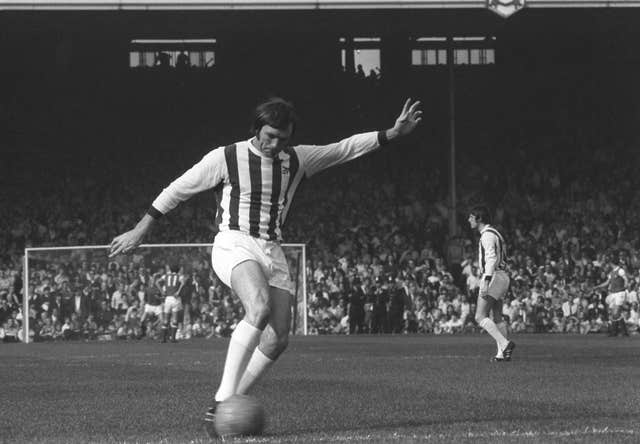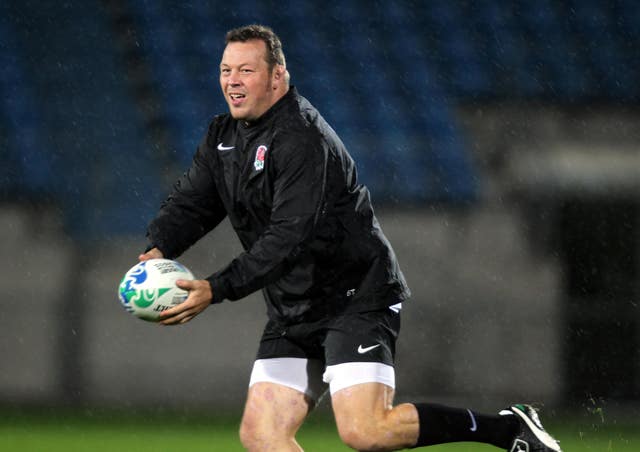The leader of a key study which established an increased risk to professional footballers of death from neurodegenerative disease will give evidence to a new parliamentary inquiry next week.
Professor Willie Stewart will address MPs on the Digital, Culture, Media and Sport (DCMS) committee on Tuesday morning on the link between sport and long-term brain injury, the committee has announced.
The FIELD study which he led found footballers were at three-and-a-half times greater risk of dying from neurodegenerative disease compared to age-matched members of the general population.
"@thepfa has welcomed the fact that English football is taking the lead on this vital issue. However, we maintain that temporary #concussion substitutions may be preferable to the permanent substitutions proposed by @TheIFAB."
Agreedhttps://t.co/cCoVHagWWA
— Dr Willie Stewart (@WillStewNeuro) February 10, 2021
Prof Stewart was also the man who carried out an examination on the brain of England's 1966 World Cup-winning midfielder Nobby Stiles after his death last October and found evidence of chronic traumatic encephalopathy (CTE), which is thought to be caused by repeated blows to the head.
Stiles is one of four members of the 1966 starting line-up to have died with dementia. A fifth, Sir Bobby Charlton, is living with the condition, his family have said.
The first session will look at the strength of evidence to link head trauma from concussion and heading to the development of disorders such as dementia.
Also giving evidence on Tuesday morning will be Professor Craig Ritchie from the University of Edinburgh's Centre for Clinical Brain Sciences, the committee said.
Headway has been invited to give evidence to a parliamentary inquiry that will examine the links between sport and long-term brain injury.
Read more: https://t.co/6Wk2Oed8tg#ConcussionAware #Concussion
— Headway – the brain injury association (@HeadwayUK) March 3, 2021
Later in the morning the MPs will hear from Peter McCabe, the chief executive of brain injury charity Headway, which has long campaigned for sports like football to put in place extra protection for participants, along with Alzheimer's Society head of research Dr Richard Oakley.
Dr Michael Grey, from the UK Acquired Brain Injury Forum, is the final individual involved in the first session.
Dr Grey is leading the SCORES Project at the University of East Anglia, which will investigate the rate of cognitive decline in professional footballers compared to the general population. It is one of a number of ongoing studies examining the risk.
It is expected that leaders from various sports governing bodies will be invited to future hearings.
The Football Association is understood to welcome the opportunity to participate.
It is also expected that brain injury campaigners such as Dawn Astle will give evidence.

Her father Jeff was a former West Brom and England footballer and was found to have had CTE after his death in 2002. The coroner ruled the brain injury had been caused by his repetitive heading of a ball in training and in matches.
Dawn Astle told the PA news agency earlier this week she welcomed the inquiry and felt the issue had been "swept under the carpet" by the authorities for too long.
The inquiry comes at a time when legal actions on behalf of footballers affected by neurodegenerative disease are being prepared, along with similar actions in both rugby codes.
Law firm Rylands has already submitted a letter of claim to World Rugby, the Rugby Football Union and the Welsh Rugby Union on behalf of nine former rugby union players.

The group includes former England international Steve Thompson, who has been diagnosed with early onset dementia and says he can no longer remember playing in England's triumphant 2003 World Cup campaign.
The coronavirus pandemic is understood to have delayed some of the screening necessary to diagnose players involved in the rugby league action.
Coaches of primary school age children in England, Northern Ireland and Scotland were advised from last year to avoid practising heading in training, while a working group is looking at putting in place limits in the senior professional game.
/https%3A%2F%2Fsportsmole-media-prod.s3.gra.io.cloud.ovh.net%2F20%2F19%2Ffootball-pitch-oped.jpg)
/https%3A%2F%2Fsportsmole-media-prod.s3.gra.io.cloud.ovh.net%2Fuploads%2F2025%2F09%2Fborussia-monchengladbach-interim-manager-eugen-polanski-on-september-21-2025-68d590502dea2010015740.jpg)
/https%3A%2F%2Fsportsmole-media-prod.s3.gra.io.cloud.ovh.net%2Fuploads%2F2025%2F10%2Fimago1068453041-1-6904839988055021423803.jpg)
/https%3A%2F%2Fsportsmole-media-prod.s3.gra.io.cloud.ovh.net%2Fuploads%2F2025%2F11%2Fvitinha-psg-6927b0e634e53530059007.jpg)
/https%3A%2F%2Fsportsmole-media-prod.s3.gra.io.cloud.ovh.net%2Fuploads%2F2025%2F11%2Farne-slot-2-69279e51ba9f0998846388.jpg)